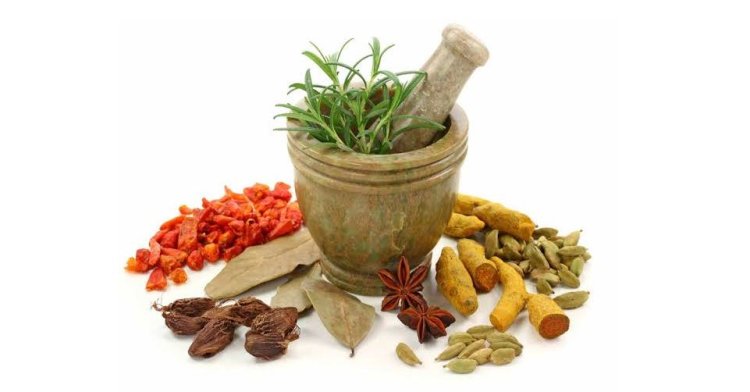Benefits of the herbal supplements
Herbal supplements are products derived from plants and/or their oils, roots, seeds, berries or flowers. Herbal supplements have been used for many centuries. They are believed to have healing properties. For thousands of years, civilizations have used herbal medicine and other natural resources to cure ailments and reduce the severity of symptoms. Those civilizations may have been onto something, as there is some truth to the very real benefits of herbal medications.

Herbal Supplements
For centuries, herbal supplements have been used for their healing properties. Before you take herbals, make sure you know what's in them, if they're safe, and how they react with other supplements and medications.
What are herbal supplements?
Herbal supplements are products derived from plants and/or their oils, roots, seeds, berries or flowers. Herbal supplements have been used for many centuries. They are believed to have healing properties.
What are the forms of herbal supplements?
Herbal products come in many different forms and may be used internally or externally. The forms of herbal products include:
- Liquid extracts.
- Teas.
- Tablets and capsules.
- Bath salts.
- Oils.
- Ointments.
What are some common herbal supplements and their uses?
There are many herbal supplements that have several different uses. The following are some of the most common:
Aloe Vera: used topically for burns, psoriasis and osteoarthritis. Used in the oral form for digestive issues such as gastritis or constipation.
Black cohosh: used to treat hot flashes, night sweats, vaginal dryness and menopausal symptoms.
Chamomile: used to treat sleeplessness, anxiety, upset stomach, gas and diarrhea. It is also used topically for skin conditions. Caution in people with ragweed allergy.
Echinacea: used to fight cold and flu symptoms.
Flaxseed: used to lower cholesterol. Good source of fiber and omega-3 fatty acids.
Ginger: thought to relieve nausea and motion sickness, lower blood cholesterol, decrease platelet aggregation and act as a digestive aid and antioxidant. Ginger can interfere with blood clotting.
Ginko: used to treat memory problems and tinnitus (ringing in the ears). Can be used along with the antidepressant selective serotonin reuptake inhibitors (SSRIs) to enhance sex drive and sexual performance in people who have side effects with antidepressant medications. Caution in people taking blood thinners.
Ginseng (Panax ginseng): thought to slow aging, increase mental and physical capacity, increase sexual performance and boost immunity. It should not be taken by people with hypertension (high blood pressure).
Beta carotene: antioxidant thought to fight free radicals (substances that harm the body when left unchecked). Using vitamin supplements that contain beta carotene should be actively discouraged because of an increased risk of death. Choose supplements with mixed carotenes.
Peppermint oil: used to treat digestion problems such as nausea, indigestion, stomach problems and bowel conditions.
Soy: used to treat menopausal symptoms, memory problems and high cholesterol levels. Organic, whole soy food is preferable to soy supplements and processed soy foods like soy hot dogs.
Nettle (Urtica dioica): thought to fight urinary tract infections, kidney and bladder stones, and rheumatism. It is used externally to control dandruff. Nettle should not be taken by people with fluid retention caused by reduced heart or kidney function.
St. John’s Wort: used to treat depression, anxiety and sleep disorders. NOTE: This herb has many other drug and herb interactions. Consult your healthcare provider before starting this supplement.
Feverfew (Tanacetum parthenium): believed to prevent and treat migraines, arthritis and allergies. Feverfew can interfere with blood clotting when taken internally.
Tea tree oil: used topically to treat several conditions including, acne, athlete's foot, nail fungus, wounds, infections, lice, oral yeast infection (thrush), cold sores and dandruff.
How popular are herbal supplements?
Herbal supplements are widely used in the United States. A study by the Centers for Disease Control states that more than half of the people in the country take a daily herbal supplement.
Are herbal supplements safe to use?
The Dietary Supplement Health Education Act of October 1994 does not require manufacturers of herbal products to prove that their products are either safe or effective before they are put on the market. However, the Food and Drug Administration (FDA) is responsible for monitoring the safety of a product after it has become available to consumers.
In many cases, people use herbal supplements with prescribed medicines. This can result in serious health problems due to drug interactions. Always talk to your healthcare provider before you begin using an herbal supplement.
If you take aspirin, digoxin, diuretics, hypoglycemics, nonsteroidal anti-inflammatory drugs, spironolactone or warfarin, DO NOT use herbal supplements without first checking with your doctor.
Advantages of Herbal Supplements
1. Reduced side effects
Herbal medicines are often well tolerated by the body because they are natural. Regrettably, this is not always the case with prescription medications. Patients can gradually reduce or even eliminate the number of prescription-related side effects they experience on a daily basis by replacing a prescription drug with a natural one.
2. Enhanced savings
Prescription medications are costly. Herbal medicine is frequently less expensive to produce because the medications are made from abundant and simple-to-produce natural resources. A lower production cost frequently translates to a lower retail cost.
3. Self-healing
Prescription drugs are frequently intended to mask symptoms rather than cure the underlying condition. Herbal medicine, on the other hand, may force people to listen to their bodies and pinpoint the source of their pain or discomfort. A patient may be able to achieve better health sooner than expected with the assistance of a medical professional who specializes in alternative medicine.
4. Empowerment
For many people, using herbal medicine is about taking control of their personal health more than anything else. A good natural healer will educate people on what their bodies require and how to keep them healthy. The healer will not simply hand a patient a prescription to mask their discomfort.
5. Improved overall health
There are numerous benefits of herbal supplements. To begin, rather than suppressing symptoms, natural cures frequently aim to identify and eradicate illness. This approach is more likely to result in better health than pharmaceutical use.
Finally, natural medicine is beneficial to gut health. It accomplishes this by improving digestion and creating an environment conducive to the growth of beneficial microbes.
Click Here to Visit














